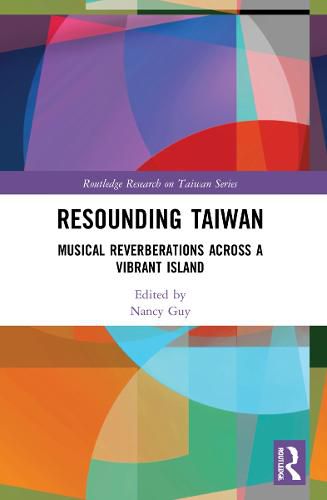Readings Newsletter
Become a Readings Member to make your shopping experience even easier.
Sign in or sign up for free!
You’re not far away from qualifying for FREE standard shipping within Australia
You’ve qualified for FREE standard shipping within Australia
The cart is loading…






This book vibrantly demonstrates how the study of music allows for identification and interpretation of the forces that form Taiwanese society, from politics and policy to reactions to and assertions of such policies.
Contributors to this edited volume explore how music shapes life - and life shapes music - in Taiwan, focusing on subjects ranging from musical life under Japanese colonial rule (1895-1945) through to the contemporary creations of Indigenous musicians, popular music performance and production, Christian religious music, traditional ritual music and theatre, conceptions about sound and noise, and garbage truck music's role in reducing household waste. The volume's twelve chapters present diverse approaches to their sounding subjects, some deeply rooted in the methods and concerns explored by Taiwan's first generation of ethnomusicologists. Others employ current social theories.
Presenting a window into the cultural lives of the residents of this multicultural, politically contested island, Resounding Taiwan will appeal to students and scholars of musicology and ethnomusicology, anthropology and Asian studies more widely.
$9.00 standard shipping within Australia
FREE standard shipping within Australia for orders over $100.00
Express & International shipping calculated at checkout
This book vibrantly demonstrates how the study of music allows for identification and interpretation of the forces that form Taiwanese society, from politics and policy to reactions to and assertions of such policies.
Contributors to this edited volume explore how music shapes life - and life shapes music - in Taiwan, focusing on subjects ranging from musical life under Japanese colonial rule (1895-1945) through to the contemporary creations of Indigenous musicians, popular music performance and production, Christian religious music, traditional ritual music and theatre, conceptions about sound and noise, and garbage truck music's role in reducing household waste. The volume's twelve chapters present diverse approaches to their sounding subjects, some deeply rooted in the methods and concerns explored by Taiwan's first generation of ethnomusicologists. Others employ current social theories.
Presenting a window into the cultural lives of the residents of this multicultural, politically contested island, Resounding Taiwan will appeal to students and scholars of musicology and ethnomusicology, anthropology and Asian studies more widely.